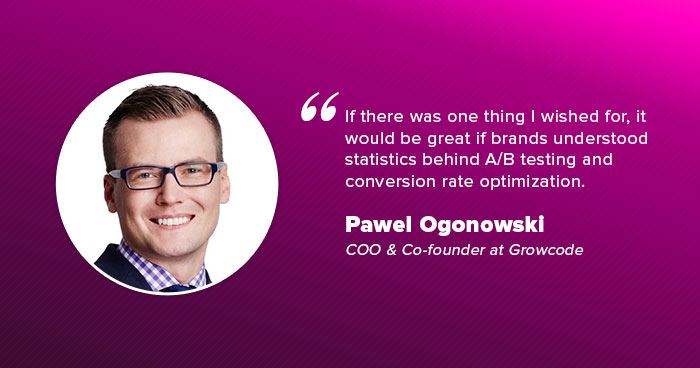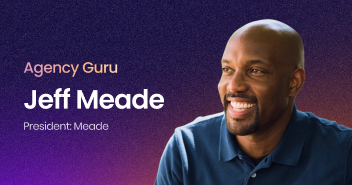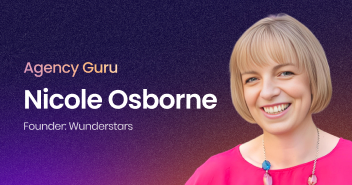
For our interview series, we are always hunting for growth hackers who are at the top of their game. This time we have COO & Co-founder at Growcode, Pawel Ogonowski with us. Pawel is known as the master of conversion rate optimization (CRO) in the ecommerce industry. He and two of his friends co-founded Growcode, a CRO focused digital agency.
Pawel has over a decade of experience in marketing analytics, and data-driven lead generation. Before Growcode, he founded Conversion, a CRO and marketing analytics company in Poland. He is also a lecturer in SGH Warsaw School of Economics. Let’s learn more about him and his business ventures.
Over to Pawel.
Q. Cloudways: Let’s start with your definition of digital marketing? What evolution have you observed in the way brands use digital marketing practices?
Pawel: In a nutshell, digital marketing encompasses all marketing efforts that leverage the internet. Businesses take advantage of digital channels like search engines, social media, email, and third-party websites to connect with both current and prospective customers.
So how has it evolved?
First, it has become more complex. There are more channels, more devices, and more advertising options. Marketing is tougher because of this increased complexity.
Spending has also increased. There’s more competition and a smaller margin for error. There’s far less low-hanging fruit compared to two or three years ago.
Another significant change I’ve noticed is that the activities have moved in-house for many ecommerce brands. In the past, everybody used agencies for SEO, CPC campaigns, social media, etc. Nowadays, most of the big brands are building these competencies in house. The accessibility of advanced platforms like Google Marketing Platform has enabled retailers to reach specific customers and achieve agency-level results.
Digital marketing has also become more granular. It’s far easier to target the specific segments and groups of people that we really want to reach. When we’re connecting with people who we understand at a precise level, we can tailor messages very effectively.
Of course, privacy has also become an issue, especially in Europe. The GDPR (General Data Protection Regulation) was introduced by the EU. And people all around the world are more aware of privacy issues now. The Cambridge Analytica data scandal was a big turning point too. All of this has led to greater awareness about how marketers can handle data, and we’re much more conscious of the limits of ethical data use.
Finally, I would be remiss if I didn’t mention automation. Many decisions are made nowadays by algorithms, AI technology, self-learning software, and so on.
Q. Cloudways: You co-founded Growcode with Mariusz Michalczuk. How did you guys meet at first? What made you think about founding a company focused on ecommerce growth?
Pawel: In fact there are three of us – Pawel Ogonowski (that’s me), Mariusz Michalczuk, and Mateusz Ogonowski – actually happen to have the same surname, but we’re not brothers 🙂

Growcode’s trio: Pawel Ogonowski, Mateusz Ogonowski, Mariusz Michalczuk
We met at the University. We were studying at the Warsaw School of Economics here in Poland. We’re all into numbers, crunching data, and we love to deliver value for customers. Combine that with the fact that we ran an online store ten years ago, and you’ve got an exciting recipe for an ecommerce optimization project.
We realized quite early on, that our store was poorly designed and that our case wasn’t unique. We managed to grow our conversion rate by 3X and thought that this might be something that interests other companies. We saw that brands were struggling with user experience and their conversion rates were suffering.
“We managed to grow our conversion rate by 3X and thought that this might be something other companies will be interested in,“ Pawel Ogonowski, COO, Growcode
We realized we could help them by optimizing user experience, which would have the knock-on effect of boosting conversion rates. We also figured out early on that any solution would need to be comprehensive – that it would need to include everything (software, people, strategy, etc.) in one package and that it should be 100% outsourced.

That’s where it all started – Warsaw School of Economics (source)
Q. Cloudways: Do you think conversion rate optimization has matured as an ecommerce strategy component? What changes / ideas do you wish brands should follow to improve CRO?
Pawel: CRO has definitely matured and gained greater prominence as an ecommerce strategy. I think, everything, from general best practices to software tools, has become nuanced and effective.
Having said that, there are still many myths. Retailers tend to oversimplify CRO. They’ll make a single color change to a call-to-action button, for example, and think that’s it. It goes without saying that it doesn’t work that way. At a fundamental level, CRO is about understanding customers’ problems, needs, and desires.
What’s more, you can’t understate the importance of testing. Retailers often equate optimization testing with standard A/B split-testing, but that’s like saying basketball is just throwing a ball through a hoop. It’s a massive oversimplification. During a typical optimization campaign, we run dozens of multivariate tests with carefully selected samples and intricate behavioral analysis.
“If there was one thing I wished for, it would be great if brands understood statistics behind A/B testing and conversion rate optimization.” COO, Growcode.
Q. Cloudways: What are your top three priorities while developing a business / brand optimization plan? Are there any significant differences between CRO for online businesses and brands?
Pawel: Before I do anything else, I need to grasp the value proposition of the business / brand fully. It all comes down to the value proposition. Sometimes it doesn’t matter if you have the best-optimized site in the world. If people don’t like what you’re selling, and I mean the whole package, you’re not going to make any money.
Secondly, I need to understand why customers are buying. Which boxes does the value proposition tick for them? I also need to try and figure out why people who seem to fit the ideal customer profile (ICP) aren’t buying. So it really begins with an understanding of the target market’s pain points, needs, delights, etc.
Here are my top three:
- Understand the business’ value proposition.
- Understand what’s motivating current customers to buy.
- Understand what’s causing potential customers not to buy.
When it comes to the differences between CRO for online business and brands, there’s one big thing that stands out. I define a “brand” as a company that has both an online and offline presence. “Online businesses” operate exclusively online.
Brands tend to change more slowly. There’s usually a lot of bureaucracy that has to be overcome to make changes, and companies can be quite attached to their existing processes.
Online players, on the other hand, can implement ideas straight away. In my experience, they’re also willing to commit to constant optimizations and development. So, we usually stick with online players to help them generate results faster.

Pawel’s advice on developing business/brand optimization plan
Q. Cloudways: What are some retail brands that you think are doing great online as well when it comes to ecommerce?
Pawel: The first company that comes to mind is Walmart. It’s doing a great job of competing with Amazon.
I’ve been seriously impressed with their digital sales figures over the last few years. They’re constantly innovating their business model and have come up with some compelling differences.
From European markets, I truly admire Mango. It has a multinational strategy and a rock-solid connection between online and offline. They operate in several countries and somehow manage to offer their customers localized delivery, return policy, and payment options.
Q. Cloudways: Name some people in the ecommerce marketing and conversion optimization who have inspired you in all these years? Name five (if you can).
Pawel: My first pick is Avinash Kaushik. He’s the godfather of digital analytics. His blog and books have been immensely valuable to me.
My second choice is Bryan Eisenberg. I learned the fundamentals of A/B testing and conversion rate optimization from him.
The third person is Linda Bustos. She used to write for Get Elastic, which is easily one of the best ecommerce blogs on the web.
There’s also Chris Goward from Widerfunnel. I love his unique approach to CRO.
And finally, there’s Andrew Youderian from Ecommerce Fuel. I love his podcasts and the community that he’s built.
Q. Cloudways: Everyone fails. Can you recount the failures that taught you the most valuable lessons?
Pawel: It’s hard to name just one failure. I learn new lessons every month. We’ve fostered a testing and experimentation culture at Growcode because we believe that you have to make mistakes to grow, and gather new experiences and insights.
Perhaps the most painful lesson I ever learned was about employee culture and the need to ensure alignment between corporate and individual values.
Around five or six years ago, we made some awful hiring decisions. We ended up with a team of people that had completely different values to the ones we were looking for. In the end, we had to get rid of nearly half our people. I learned that day that values are the most important thing. If you feel that somebody doesn’t gel with the company culture, don’t hire them. When people don’t match, the atmosphere deteriorates. Everybody feels less motivated because of one person.
That was the biggest failure and I learned from it.
Q. Cloudways: Do you read often? What books do you recommend online business owners should read in the next six months?
Pawel: I love reading! I read anywhere between thirty and forty books a year! Although that number does include my Audible audiobooks.
When it comes to books for entrepreneurs, there are six I would recommend without hesitation:
- Scaling Up – I love this one because it’s a practical handbook about setting up your business for maximum growth.
- Shoe Dog: A Memoir by the Creator of Nike – An extremely inspiring story. I would love to see more entrepreneurs like Phil Knight.
- Rich Dad, Poor Dad – A straightforward book about fostering the right mindset and cultivating your creative talents.
- Deep Work – I’ve yet to come across a better book about developing focus.
- Extreme Ownership – A great book filled with tactics from the Navy Seals.
- Measure What Matters – A fantastic book about the OKR (objectives and key results) framework and setting priorities.
There you go…six books for the upcoming six months.

A foolproof way to inspire yourself (source)
Q. Cloudways: You have been teaching digital marketing since 2013. How do you think that it helped you in your career and business?
Pawel: It’s let me fulfill one of my central passions: to spread my knowledge. I’ve also met many great people and that’s opened up a lot of doors. Some of the students I taught years ago, are now big names in the industry.
Q. Cloudways: Do you think that we will see another Amazon in next 5 years? Any ecommerce brand that you think has potential to become a unicorn?
Pawel: I expect to see some disruptive brands, but it’s hard to say when exactly. I don’t know if there’ll be another Amazon in the next five years. Especially if we’re thinking about the US market.
But companies do always come and go. So beyond five years, who knows? We may well see another Amazon or Facebook or Google. The lifespan of S&P 500 companies is getting shorter and shorter.
Q. Cloudways: How do you think of personalization when it comes to ecommerce? What are some brands that you think using ecommerce personalization in an effective way?
Pawel: Personalization is now a crucial part of the ecommerce game. Customers expect personalized experiences. They love to enter a familiar shop and receive personalized suggestions. Data also proves that people tend to spend more if a shopping experience is personalized.
I would say personalization is now non-negotiable for retailers.
What’s more, most brands suck at personalization. And this presents a huge opportunity. It’s easy to collect data about users, but it’s hard to use that data to create personalized experiences. Those brands that are willing to embrace the difficulty will outdo their competitors.
“Personalization is now non-negotiable for retailers. It is a crucial part of the ecommerce game. Customers expect personalized experiences,” Pawel Ogonowski, Co-founder at Growcode
In terms of specific brands, I would definitely point to Booking.com. It targets customers with apartment suggestions near their favorite locations, follow-up with emails, and offer personalized offers.
Zalando is also working at a high level. On the site, customers receive recommendations about clothes that match their previous choices.
Q. Cloudways: What are some of your go-to tools for auditing an ecommerce site for a CRO strategy?
Pawel: There are so many great tools.
First of all, there’s Google Analytics (GA). Few other solutions on the market can even touch GA when it comes to the big picture. Secondary analytics tools like Hotjar are also good for digging into the data.
Then there’s Google PageSpeed Insights for measuring your load time and webpage speed. Site speed is a crucial factor when optimizing for higher revenue and conversions.
I would also add Crowd Signal for surveys. Google Analytics only tells you what’s working, not what isn’t. For that, you need real feedback from real people. I also like Hangout and Skype for conducting user tests. It’s basic, but you don’t need a wide feature-set when dealing with testers.
Finally, I also recommend a good old telephone. Every retailer should listen to recordings from their customer service department. They’ll help you pinpoint the areas that need troubleshooting and provide you with a continuous stream of testing ideas.
Found Pawel’s ideas interesting? Connect with him on Twitter.
Sajjad Shahid
Sajjad is an Ecommerce Community Manager at Cloudways. He loves helping out Ecommerce store owners, merchants and marketers in establishing their businesses and startups. Sajjad enjoys playing table tennis and cricket over the weekend.


